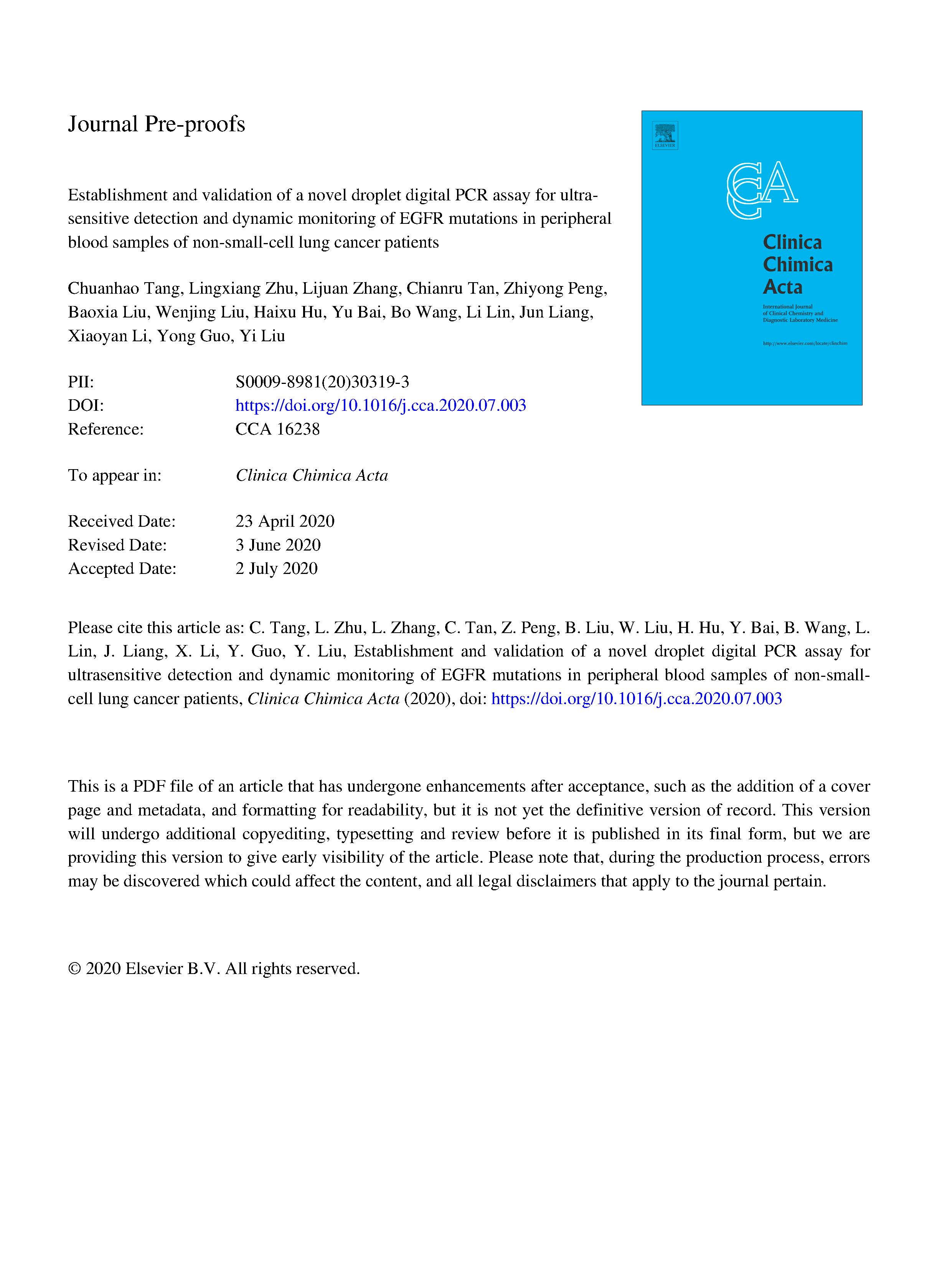Establishment and validation of a novel droplet digital PCR assay for ultrasensitive detection and dynamic monitoring of EGFR mutations in peripheral blood samples of non-small-cell lung cancer patients
release date:2020-07-02

Background:
Droplet digital PCR (ddPCR)-based blood detection of EGFR mutations plays significant roles in the individualized therapy of non-small-cell lung cancer (NSCLC) patients. However, a standard assay that is approved by health authorities is still lacking. Additionally, the proper application of this method in clinical settings also needs further investigation.
Methods:
The performance of a newly established ddPCR assay was first evaluated using reference samples and then validated by comparing this method with the amplification refractory mutation system (ARMS) using cell-free DNA (cfDNA) in patients’ peripheral blood. Further, the correlation between dynamic quantification of EGFR mutation in the patients and their clinical outcome of tyrosine kinase inhibitors (TKIs) therapy was investigated.
Results:
A total of 77 patients were included, with 50 in the test group and 27 in the validation group. According to the results of the reference samples and the blood samples in the test group, the cut-off value for patient detection was proposed as mutation rate ≥ 0.1% (total copy number of cfDNA ≥1,000) or at least one copy of mutation DNA was detected (total copy number of cfDNA <1,000). With this criterion, superior sensitivity of our assay to that of ARMS was observed (P=0.002 for Ex19Del & L858R and P<0.001 for T790M). The dynamic quantification of EGFR mutations during TKI therapy indicated that an increase in mutation abundance was correlated with resistance, while a decline was associated with response. Notably, a rebound in mutation abundance during chemotherapy may indicate a desirable chance for TKI re-treatment.
Conclusion:
The novel ddPCR assay showed superior sensitivity in the detection of EGFR mutation in blood. The dynamic quantification of EGFR mutations by this assay would greatly facilitate the administration of TKI therapy, including the monitoring of resistance and response, as well as cohort screening for retreatment.
Key words: Non-Small-Cell Lung Cancer (NSCLC); Epidermal Growth Factor Receptor (EGFR); Tyrosine Kinase Inhibitor (TKI); Droplet Digital PCR (ddPCR); Amplification Refractory Mutation System (ARMS); Mutation Abundance
See all: https://doi.org/10.1016/j.cca.2020.07.003
 Background:
Background: